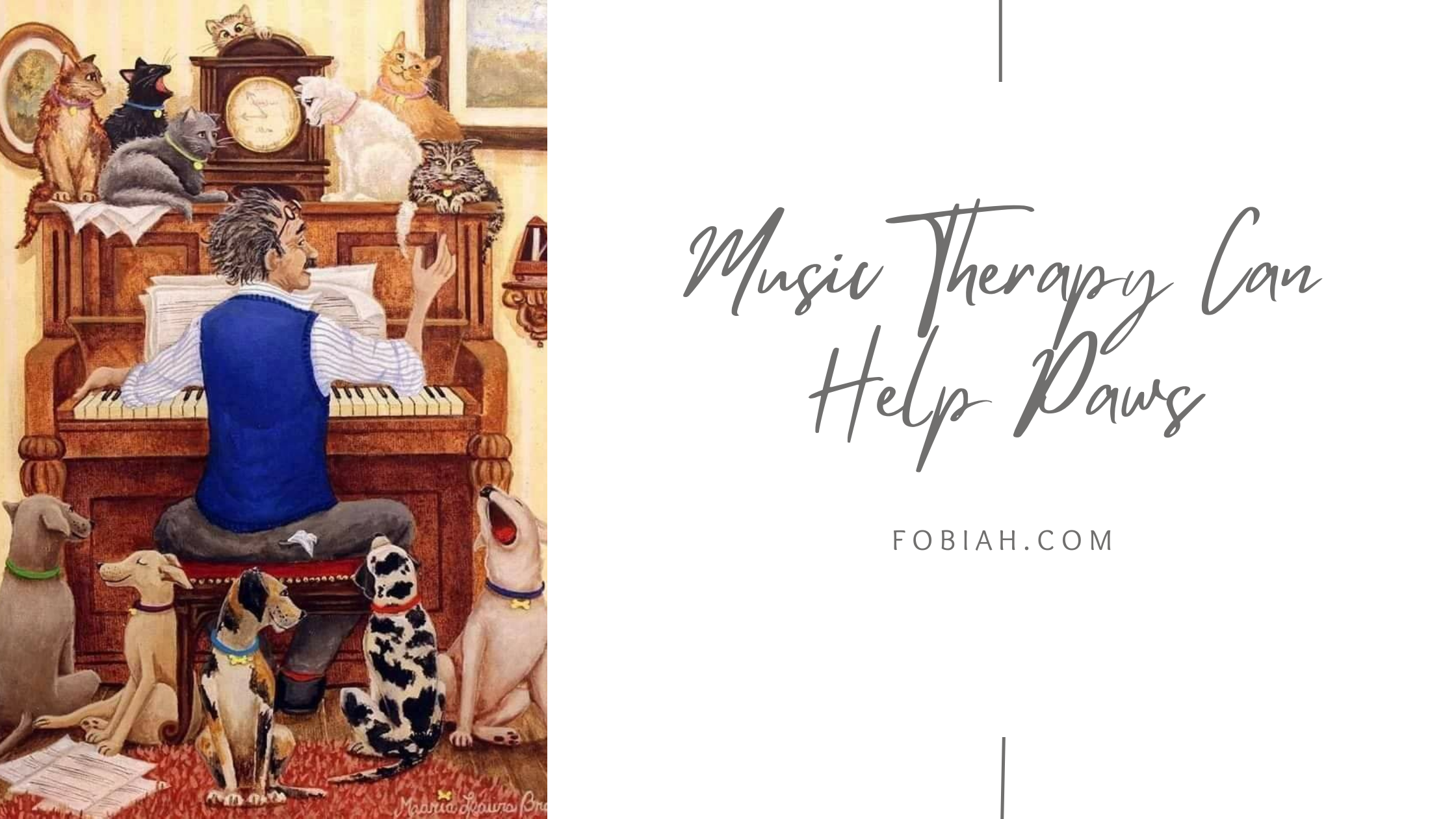It has always been said that music tames beasts, and good music relaxes and evades anyone from problems. But not just for anyone; the melodies are also therapeutic for animals. In this post, we are going to talk to you about music and dogs, about the effects it produces, and how good music is for them. If you have a large or small dog, of one breed or another, who is more or less nervous, stay and read the effects that this musical therapy produces. You’ll want to put it into practice sooner than you think!
Music and Dogs
The development of the senses occurs in dogs the same as in people. Dogs make the perceptions that have meaning for us something completely different. As for music, it is not common for dogs to react to it; they are not very captivated or attracted to the rhythm. This is not something strange, since, in a different way from humans, dogs develop sound waves in a very different way. Perfections are as different as we are from them. Therefore, music and dogs , yes, but without abuse.
Although music and dogs are compatible, you have to be very aware of what music can do to them. In some cases, music can calm dogs, in other cases, it can upset them more than necessary. Music is not designed particularly for their ears, so each dog will have its own perception.
Most dogs indeed have a preference for music, similar to humans, enjoying certain types while not being as fond of others. What dog owners particularly value is when music has a calming or relaxing effect on their pets.
It’s understandable that dog owners would be intrigued by using music to promote calmness; it’s a zero-cost method that assists in cultivating the well-behaved demeanor they desire in their dogs! There is evidence indicating that certain music does help dogs relax. A study from 2002 observed that dogs exhibited significantly reduced agitation after listening to classical music selections. Their breathing slowed, and they were less likely to pace or stand. Researchers also noted that reggae and soft rock music had a similarly calming effect on dogs.
Conversely, music with short, quick notes tends to increase a dog’s restlessness. Even more concerning, heavy metal music caused tremors and shaking—certainly not conducive to relaxation! Additionally, variety is key; dogs tend to tune out music they hear repeatedly, including calming classical music; its relaxing impact diminishes with excessive repetition.
But yes, it’s important to note that not all classical music is soothing! When seeking relaxation benefits for your dog’s behaviour, be sure to choose calm and meditative music specifically.
The Science Behind the Chords that Improve Canine Health
There are decades of research warning about the calming and pain-relieving effects of music on people. Recent research has shown that music can have positive effects on canine health, influencing their behaviour and general well-being. Heart rate, blood pressure, and stress levels can be affected by music, just as they do in humans. The right choice of music can reduce anxiety and promote a relaxed environment for our canine friends. These studies, for the most part, were carried out in animal shelters. There, the researchers recorded the dogs’ responses when they were playing music. Taking note of any changes in the stress hormone cortisol. In one of these studies, psychologist Deborah Wells found that dogs seemed to be less agitated after listening to classical music. Their breathing slowed, and they were less likely to pace or stand. And with heavy metal music? Well, quite the opposite.
But there is more…
Similarly, psychologist Lori Kogan reported that dogs exposed to classical music spent more time sleeping and less time barking. In contrast, they exhibited tremors and shaking after listening to heavy metal. Bad news for Metallica fans with dogs.
But regardless of gender, the duration and frequency of a note affects how dogs respond to music. Short notes played in rapid succession led to rapid motor movements. On the other hand, the dogs appeared calm in response to simple tones, rhythms and sustained notes. The truth is that dogs are calmer when they listen to classical music, but also – to a lesser extent – when it is reggae and soft rock.
Find Your Dog’s Calming Music
Spotify offers a feature that lets you curate a personalised playlist specifically designed for your pet. The playlist consists of relaxing music for dogs going through anxiety.
Pet Acoustics designed a Pet Tunes Bluetooth speaker preloaded with calming canine music.
Similar to this is iCalmPet. It offers calming music downloads that are “psychoacoustically designed to support your dog’s nervous system function.” They are known to be relaxing, even for us!
YouTube hosts various channels with extended playlists of calming music for dogs. Here’s a 10-hour playlist from Relax My Dog.
So does Dog Calming Music Work?
If you’re a skeptic like me, you might still be questioning its effectiveness. However, evidence from several studies strongly suggests that calming music does indeed have positive effects on dogs. For instance, in one study, shelter dogs noticeably reduced their barking when exposed to calming music in their kennels.
Zoomusicology
That music affects animals is something so real that there is a field of research called zoomusicology, which studies what changes occur in an animal when it hears notes or when it emits them.
This began to be studied in the first half of the 20th century, as scientists realised that bird songs were actually music of the type that humans make. Extrapolated to domestic animals and answering the question of how music affects pets, zoomusicology shows us in a scientific way that a dog relaxing when listening to music is not a coincidence.
Allow me to share a personal anecdote: I once had a client whose dog was extremely anxious and stressed because it was a new environment for her with my dogs around as her owners were heading for a trip. Throughout the day, this poor baby paced, drooled, and panted incessantly. However, when I played the Pet Playlist by Spotify, within a few minutes, the dog settled down and laid under the table with her head on her paws and eyes closed. I could sense her settling down. So yes, it worked for me with her. But will calming music help every dog? Perhaps not. But as I frequently advise my clients, it can’t hurt to try, and it might just make a significant difference—it’s certainly worth a shot. Your dog might be one of the many that benefit from it!






Loved it ❤🐾